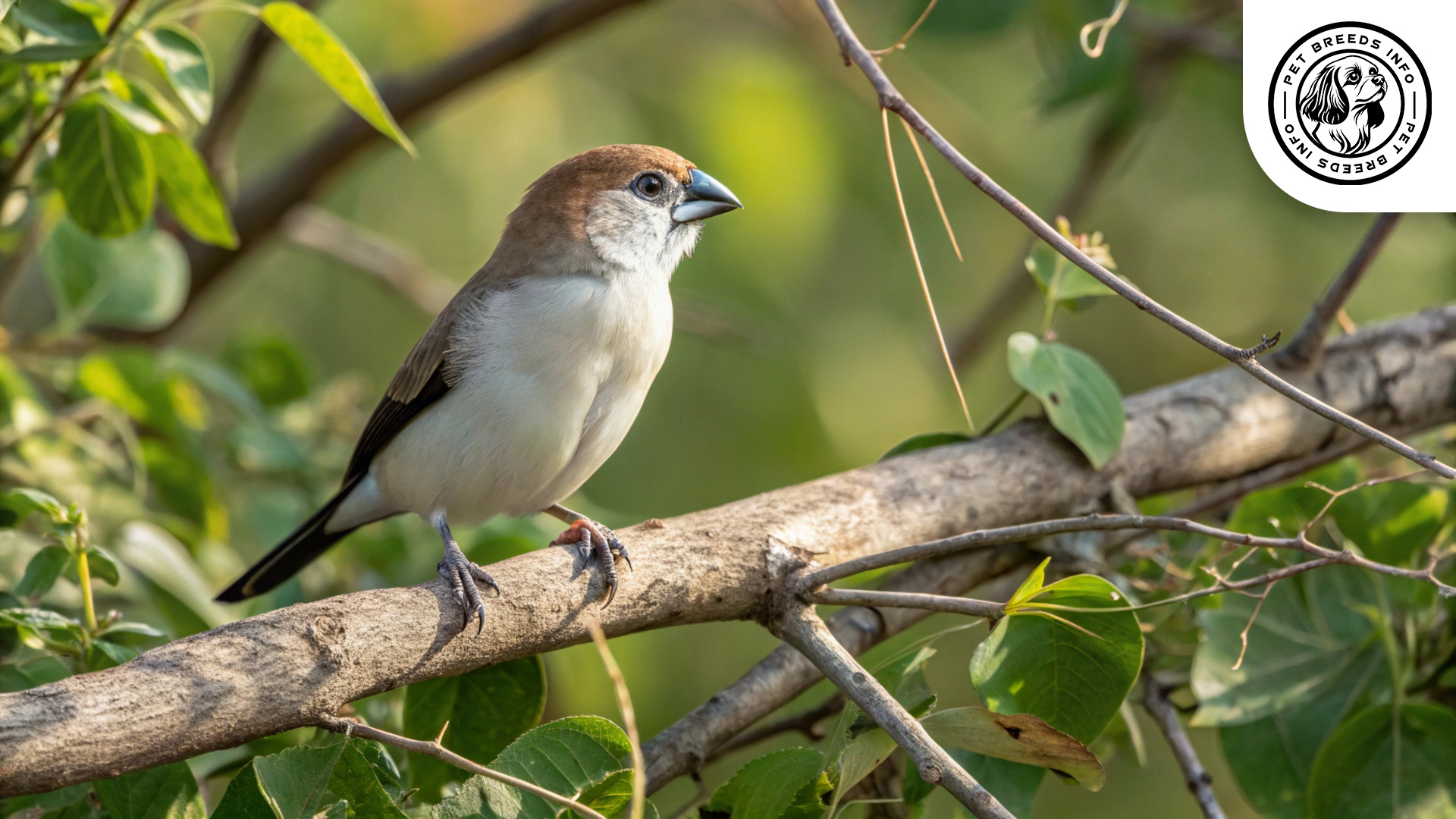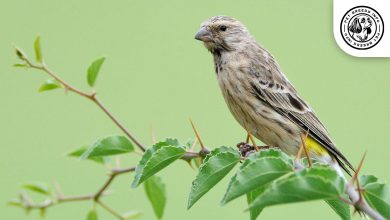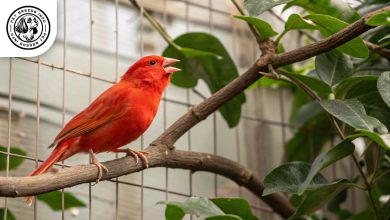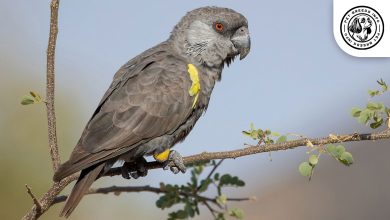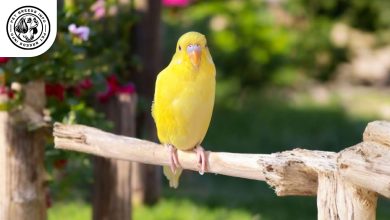West African Silverbill Bird: Personality, Lifespan, Food & Care
General Introduction of the Breed
The West African Silverbill (Euodice cantans) is a small species of finch native to the Sahel region of Africa, including countries such as Senegal, Mali, Nigeria, and Sudan. This bird is also known as the African Silverbill or simply the Silverbill Finch.
Historically, the West African Silverbill was closely related to the Indian Silverbill before being classified as a distinct species. It has long been admired for its calm nature and ease of domestication, making it a favorite among bird enthusiasts and breeders.
Table of Contents
| Common Name | West African Silverbill |
| Scientific Name | Euodice cantans |
| Origin | West Africa |
| Size | ~4.3 inches (11 cm) |
| Lifespan | 5 to 8 years |
| Egg Color | White |
| Clutch Size | 4–6 eggs |
| Temperament | Docile, social, peaceful |
| Cold-Hardy | Not very; prefers mild climates |
Physical Characteristics
The West African Silverbill is a small passerine bird that typically measures between 10 to 11 cm in length. It has a slender body with a short, rounded tail and a small, conical bill.
Its plumage features soft earth-toned brown on the upperparts, while the underparts are lighter, often a pale beige or creamy white. Its most distinctive trait is its silver-gray beak, which gives the bird its name.
The eyes are dark and round, complementing its overall gentle appearance. Its wings are relatively short, and the legs are a delicate grayish-pink shade.
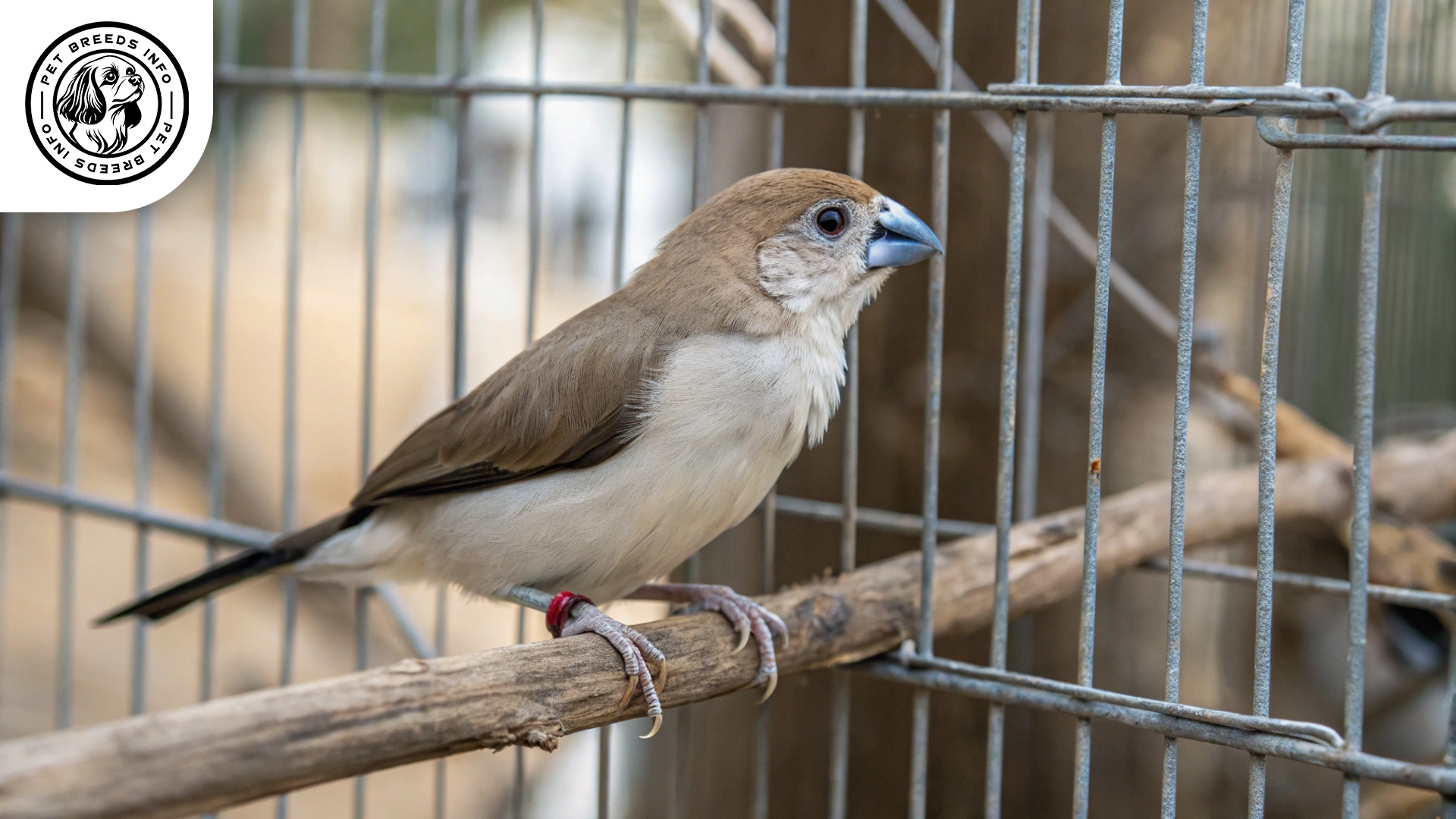
Personality and Temperament
The West African Silverbill is known for its docile and friendly nature. It is a social bird that thrives when kept in pairs or small groups. This species is easy to care for and generally adapts well to captivity.
Although not particularly vocal, it produces soft, melodious chirps and twittering sounds that add a pleasant ambiance to any aviary or home setting. It enjoys companionship and does not exhibit aggressive tendencies, making it an excellent choice for beginner bird keepers.
Read More: Yellow-faced Parrotlet Bird
Care and Maintenance Requirements
The West African Silverbill requires a spacious cage or aviary with ample perches and areas for social interaction. Since they are active birds, they appreciate an enclosure where they can fly and explore.
This bird does not require extensive grooming. A shallow dish of clean water should be provided for occasional bathing, as it enjoys keeping itself clean. Regular cage cleaning is necessary to maintain hygiene and prevent diseases.
These finches prefer environments with a moderate temperature. Extreme cold should be avoided, so owners in colder climates may need to provide additional warmth during winter.
Diet and Nutrition
A balanced diet for the West African Silverbill consists of high-quality finch seed mixes with a variety of grains, millet, and small seeds. Fresh vegetables and vitamin-rich leafy greens can be provided occasionally.
Owners should avoid offering avocado, chocolate, caffeine, and any toxic plants, as these can be harmful to the bird’s health. Clean, fresh water should always be available.
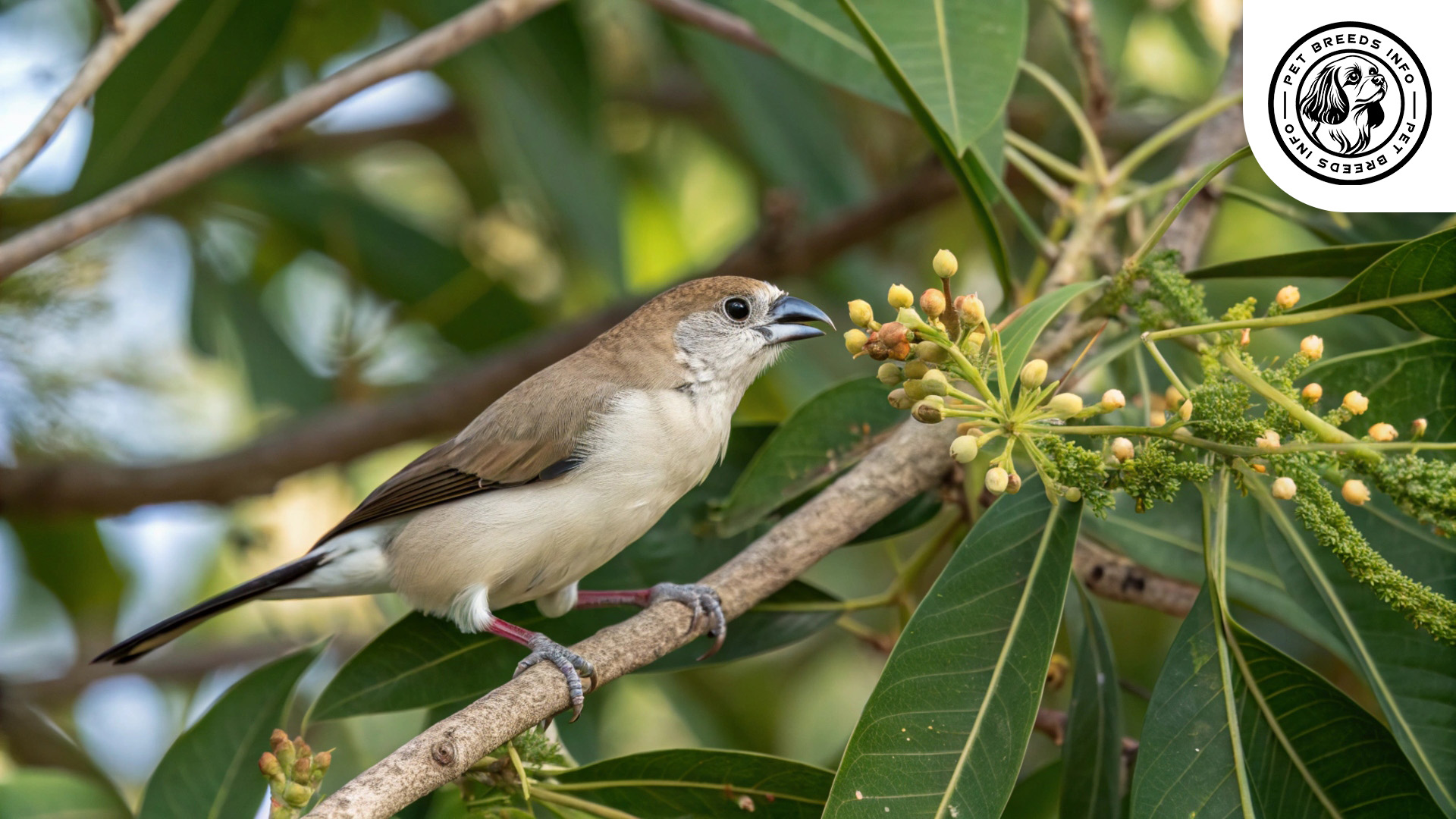
Health and Common Medical Issues
The West African Silverbill is generally hardy but can be prone to common avian health concerns, including respiratory infections, mite infestations, and nutritional deficiencies if not provided with a well-balanced diet.
Regular veterinary check-ups are recommended to ensure they remain in good health. Symptoms of illness include lethargy, puffed-up feathers, and loss of appetite.
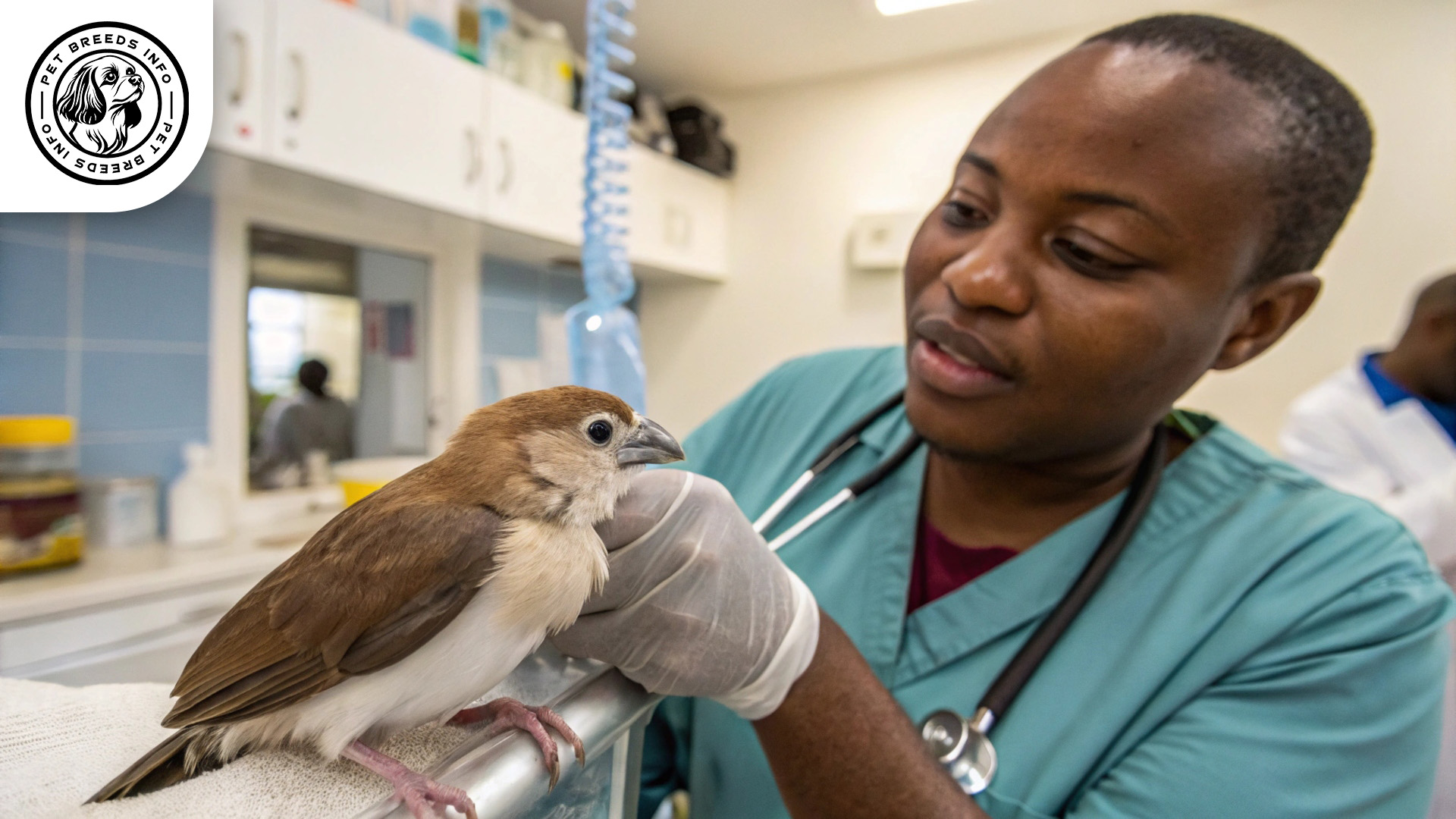
Training and Behavior Management
These birds are not typically trained for tricks or complex tasks, but they can become accustomed to human presence and comfortably interact with their owners. Consistent, gentle handling can help them build trust over time.
Providing varied perches, swings, and interactive toys can keep them mentally stimulated and prevent boredom.
Read More: Zebra Finch Bird
Interaction with Other Animals and Humans
The West African Silverbill is highly sociable and enjoys the company of its kind. It is best kept in pairs or small groups to prevent loneliness and stress.
These birds are generally peaceful and can coexist with other small finch species in mixed aviaries. However, they should not be housed with aggressive or significantly larger birds to avoid conflicts.
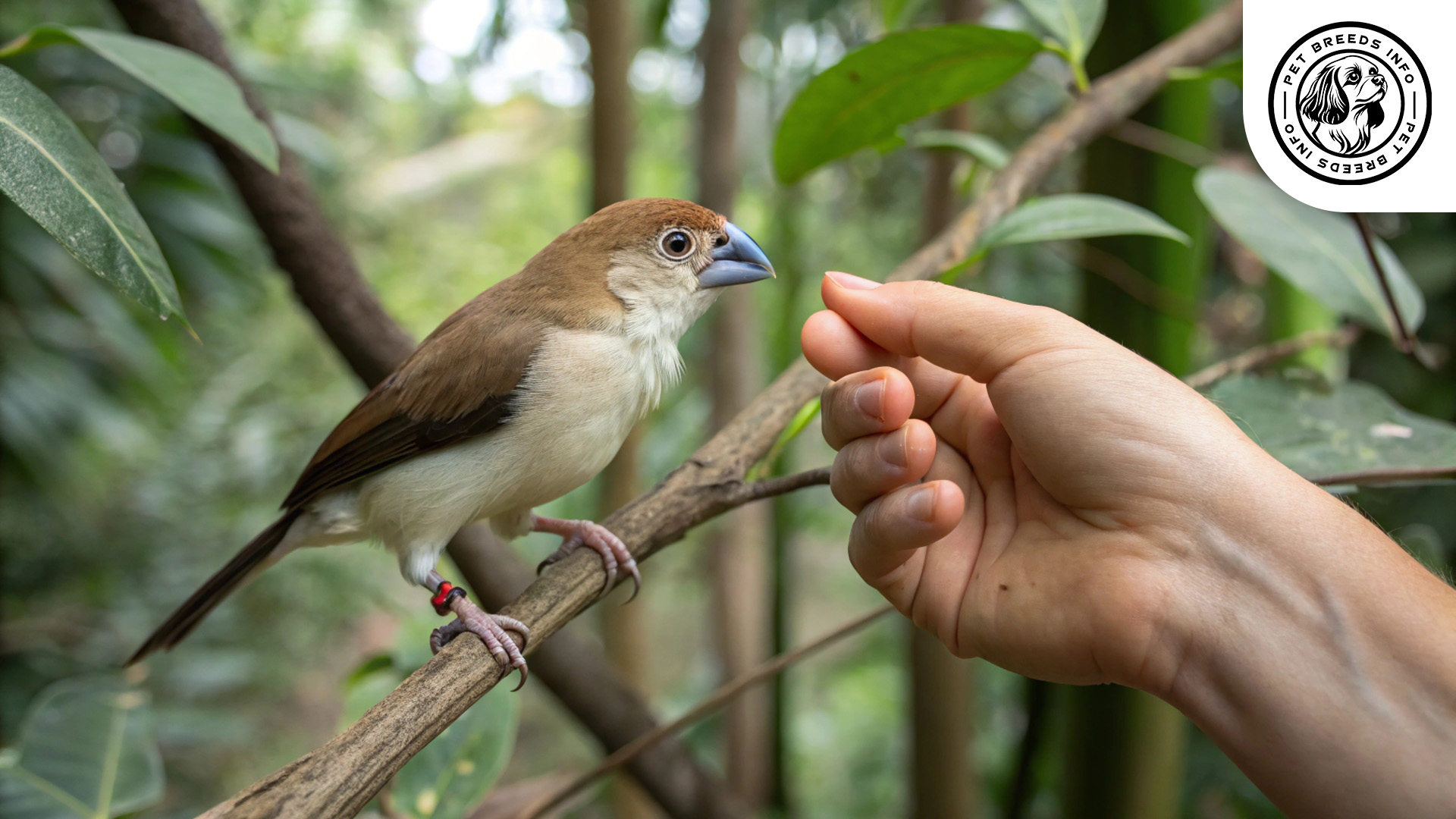
Price and Availability
The cost of a West African Silverbill varies but generally ranges from $25 to $50 per bird, depending on factors such as age, breeder reputation, and location.
It is important to purchase this bird from a reputable breeder or pet store to ensure its health and well-being. Adoption from bird rescues or avian clubs may also be an option.
Read More: Zebra Dove Bird
Conclusion and Final Thoughts
The West African Silverbill is an ideal pet for anyone looking for a low-maintenance, friendly finch. Its calm demeanor, sociability, and delightful chirping make it a great choice for novice bird keepers and experienced avian enthusiasts alike.
While they do require companionship and regular care, their minimal grooming needs and hardy nature make them a rewarding addition to any bird-loving household.
FAQ
Can West African Silverbills live alone?
They’re very social and should ideally be kept in pairs or small groups to stay healthy and happy.
Do they get along with other birds?
Yes, they coexist well with other finches and small, non-aggressive species in mixed aviaries.
Are they loud or noisy?
No, they produce gentle, pleasant chirping sounds—perfect for people who prefer quieter pets.
What do they eat besides seeds?
They enjoy occasional fresh greens, like spinach or dandelion leaves, and soft fruits in moderation.
Can they be handled?
With patience and gentle interaction, they can become comfortable with human presence, but they aren’t cuddly birds.
